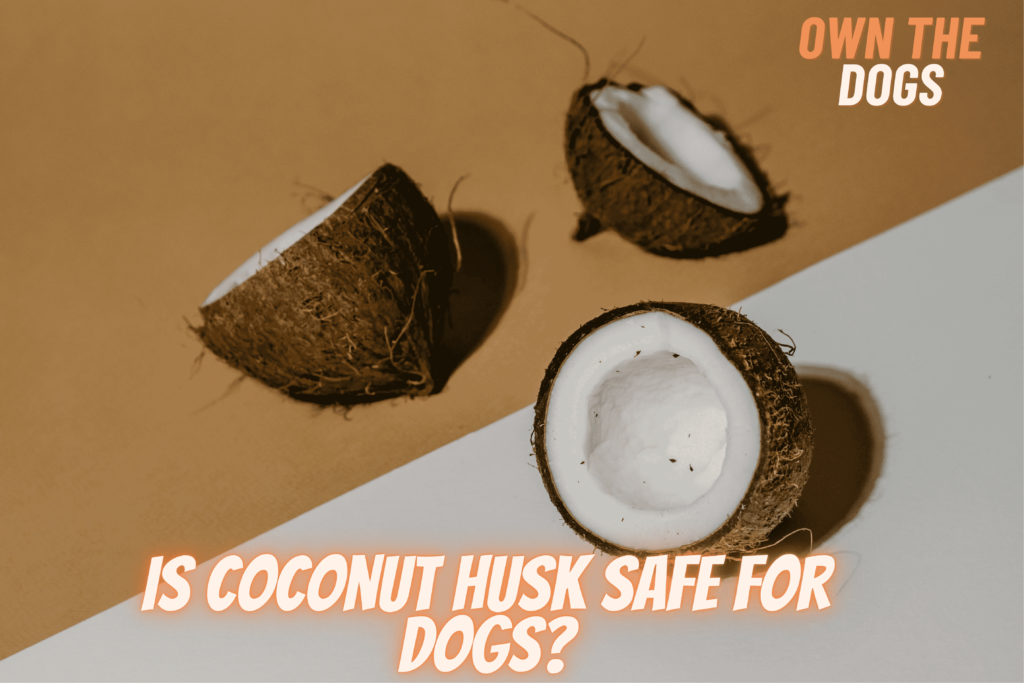Every dog owner wants the best for their furry friend and is always looking for information to keep them healthy and happy. Coconut is popular in many dog products, from treats to shampoos. But what about the outer part of the coconut, the husk?
While searching online or chatting with other dog lovers, you might ask, “Is coconut husk safe for dogs?” Read this detailed guide, where we answer this question, share expert advice, and help you decide what’s best for your dog.
Understanding the Coconut Husk
The coconut husk, also known as coir, is the fibrous outer layer of the coconut. This part of the coconut is sturdy and is often used to make ropes, mats, and other products. While humans have found multiple uses for the husk, when it comes to our canine companions, things are a bit different.
Coconut Husk and Dogs: The Good and the Potential Risks
The good news is that coconut husk, in itself, is not toxic to dogs. However, if a dog chews on large pieces of husk, there’s a risk it could become lodged in their throat or digestive system, leading to potential blockages. Moreover, the coarse nature of the husk could be abrasive to a dog’s digestive tract.
On the upside, some believe that coconut fiber can aid in digestion and reduce bad breath in dogs. However, there isn’t enough scientific evidence to back these claims conclusively.
How to Safely Introduce Coconut Husk to Your Dog
If you’re thinking of letting your dog play with or chew on coconut husk, it’s crucial to supervise them. Ensure that they’re not swallowing large pieces. Alternatively, you can explore pet products that incorporate coconut fibers in a safe and digestible format.
Remember, while coconut husk isn’t toxic, its physical properties can pose risks. Always prioritize your dog’s safety.
The Difference Between Coconut Husk and Shell
It’s essential to differentiate between the coconut’s husk and its shell. The husk is the outermost layer, fibrous and rough, often used in gardening as a soil enhancer. On the other hand, the shell is the hard, brown layer that immediately covers the coconut meat.
While there’s debate about dogs consuming the husk, the shell is universally seen as a potential choking hazard for dogs. It’s hard and can splinter, leading to potential internal injuries.
Alternative Coconut Products for Dogs
If you’re keen on introducing coconut into your dog’s diet but are wary of the husk, there are safer alternatives. Coconut oil, for instance, can be a great addition to your dog’s meals in moderation.
It’s believed to improve skin and coat health, aid digestion, and boost the immune system. Coconut water, too, can be a hydrating treat for your dog on a hot day, provided it’s unsweetened and consumed in moderation.
Conclusion
We all adore our four-legged pals and constantly seek the best for them. In this discussion about whether coconut husk is safe for dogs, we’ve shared some insights.
But if you ever have doubts, always consult a veterinarian. For more dog-related advice and tips, explore our article on “Can Dogs Eat Coconut” at ownthedogs.com, where we cover topics ranging from dog training to their favorite foods. Happy dog parenting!
Note: This article seeks to inform and guide dog owners. If you notice any adverse reactions in your dog or if they ingest a significant amount of coconut husk, always consult a vet immediately.
FAQs
What is a coconut husk?
The coconut husk, or coir, is the tough, fibrous outer layer of the coconut.
Can dogs digest coconut husk?
While the husk is not toxic, its coarse nature might be tough for dogs to digest if consumed in large amounts.
Are there any benefits to dogs eating coconut husk?
Some believe it can aid in digestion and reduce bad breath, but there isn’t enough scientific proof to confirm this.
How should I introduce coconut husk to my dog?
Always supervise your dog and ensure they’re not swallowing large chunks.
If my dog ate a lot of coconut husk, what should I do?
Always consult a vet if you’re concerned about your dog’s health or if they show signs of distress after consuming something unfamiliar.
For more information about the different foods and materials safe for dogs, continue exploring our platform!


